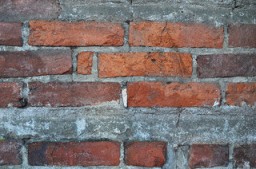The matrix.
If you’re into sci-fi movies, this means Keanu Reeves, black capes and cyberspace.
If you’re Miranda Ween (winner of the I’m a Scientist. Get me out of here! Australia Disease Zone), matrix is part of working out how to stop potentially deadly bacterial infections.
Confused? Let me take it back a step.
In a biology sense, if cells could be considered as bricks, the mortar-like stuff which surrounds them and pads them out is called matrix (also referred to as extracellular – or ‘outside the cell’ – matrix). Although it’s not technically living tissue per se, matrix is really important. Here’s why:
- Matrix keeps cells organised in the right structure so that bodily functions can happen normally
eg it keeps your lung cells in a ‘lung shape’, so that transfer of oxygen and carbon dioxide can occur when you breathe; - Matrix provides a support system for cells to divide and move in a normal way
eg when eggs in the ovary mature and are released once a month during the menstrual cycle; - Matrix acts like a storage and release system for growth and repair factors
eg when you cut your finger, the repair of skin cells happens with the support of the matrix around the damaged tissue.
In other words, matrix is pretty well essential to ensure that all tissues in your body are set up in the right way and maintain themselves to function normally even when injury occurs.
Enter bacteria. In some tissues, bacteria seem to have worked out how to convince matrix to let them move on in and set up shop. This is not good. Part of Miranda’s research is aimed at working out which bacteria-produced proteins give them this matrix-busting capacity.
As an interesting side-note, Miranda’s expertise in the area of matrix was actually developed working in a completely different field: ovarian cancer research. Her story is a great example of how knowledge of one key, central component of biology can offer you the capacity to move successfully into a completely different area of science.
[image thanks to stockerre on flickr]
